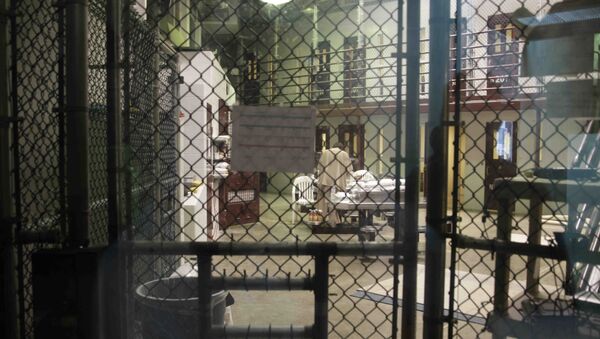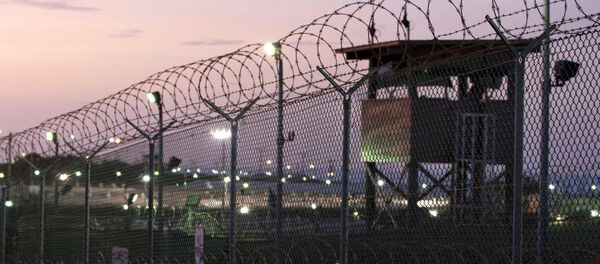Radio Sputnik’s Loud and Clear speaks with activist and professor Jeremy Varon to discuss the bill and how it has been shaped by the current political climate.
Varon describes the NDAA as "a massive military appropriations bill, which historically has had provisions that pertain to detention policy and in particular the state of the prison camp in Guantanamo."
He said that this version of the bill, like many before it, "functionally makes it impossible to close Guantanamo, by banning the movement of currently detained men to the United States for any reason, including long-term detention or trials under the military commissions or in federal courts. In addition it adds to restrictions on the transfer of men out of Guantanamo, including the list of countries to which they can’t be sent, and then also puts in other onerous bureaucratic restrictions on transfers."
Varon explained that Congress is also partly reacting to President Obama’s stated intention to see the prison camp closed. He says the bill "is clearly pushback against Obama’s long-stated and somewhat half-hearted policy of wanting to close Guantanamo. And it’s worth noting that only 13 Democratic senators voted against it, which is fairly pathetic… it shows you how much Obama is out on his own on this, even within the Democratic Party."
Loud & Clear host Brian Becker asked Varon if he thought President Obama will use his veto power to fight the bill.
"My guess would be no," h said, "He will threaten to veto it and that’s as far as his principle will go, or if he does veto it, he will accept a version that still has objectionable provisions with respect to Guantanamo."
When describing Guantanamo, Varon said, "It was created for the explicit purpose of denying any and all American legal rights or international human rights to people held captive there, and it was a place of extraordinarily abusive interrogation." He said that activists and progressives have been "begging and pleading" for Obama to make good on his calls to close Guantanamo, but it seems clear that the President has essentially given up fighting a Republican-controlled Congress that has fought the President with every legislative trick in the book. "It’s become pretty apparent that this is as far as he’s going to push things. He’ll try to release as many prisoners as are deemed eligible for release, express intention to close it and then basically hand this mess to the next President."
Becker noted that the NDAA draft carries language allowing the government to arrest Americans and detain them indefinitely, without charge or trial, and asked what kind of implications this has in light of the recent nightclub shooting in Orlando.
"The wake of Orlando has been interesting because people on the right have been thundering more anti-Muslim bigotry and talked about immigration, and stoked the politics of fear," he said, "but a lot of people in the public discourse including some reasonably honorable Republicans, are saying, ‘let’s not go down this road, it’s injurious it’s unamerican," etc., so I think we’re in a great moment of polarized debate where the forces of relative enlightenment might just barely win the day.”





